
Topics
- 2025.12.10
(Videos Released) UoA Joint Research Forum 2025 Held
Studies and Collaborations - 2025.10.02
UoA Joint Research Forum 2025
Studies and Collaborations - 2024.12.04
UoA Joint Research Forum 2024 Held
Studies and Collaborations - 2024.10.30
UoA Joint Research Forum 2024
Studies and Collaborations - 2024.04.09
The research findings on "Optimization Design of Semiconductor Mask Patterns," a collaborative research conducted by researchers from the University of Aizu, Tokyo Institute of Technology, and Kioxia Corporation, were featured in Nikkei xTECH.
Studies and Collaborations - 2024.03.28
The University of Aizu Smart Design Research Cluster and Fukushima Museum held a joint research results presentation
Studies and Collaborations - 2023.09.01
UoA Joint Research Forum 2023 will be held
Studies and Collaborations - 2022.08.29
UoA Joint Research Forum 2022 was held.
Studies and CollaborationsEvent Report - 2022.07.28
UoA Joint Research Forum 2022
News ReleaseStudies and Collaborations
About Basic Cluster
The Basic Cluster is a budding, strategic research team and is expected to transition to the CAIST cluster as the team-based research progresses.
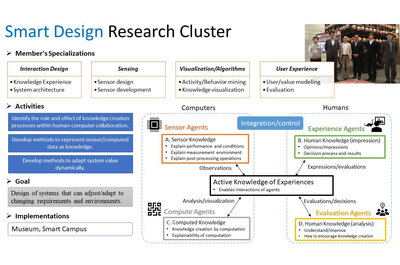
Smart Design (ARC-Design)
By innovating methods for describing and manipulating knowledge, a system in which humans can control the automation and capabilities offered by computers is realized.

Automatic AI System Design (ARC-AutoAI)
Our research is aimed at analyzing and solving difficult tasks in machine learning and deep learning, and automating a series of processes such as design, development, operation, and management of AI systems. With the help of generative Large Language Models (LLMs) we are developing tools for easy AI application creation and administration by a wide range of non-experts which aims to promote AI technology adoption in the society.

Information Security (ARC-Security)
As society becomes rapidly dependent on IT, information security becomes increasingly important. We aim to create a society where people can use IT safely through extensive research on information security, including the theory and application of cryptography, IoT security such as automobiles and robots, the privacy of big data and AI, and system management. We also focus on human resource development through industry-government-academia collaboration.
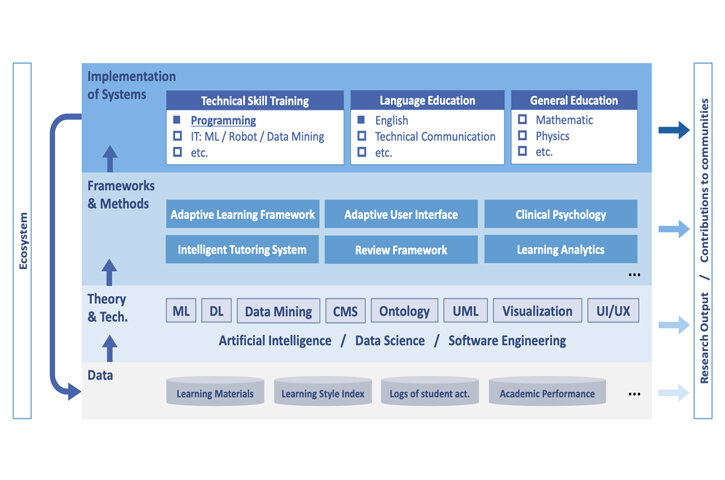
AI/DS-driven Innovative Education (ARC-Education)
The cluster of innovative education is concerned with the integration of cutting-edge technologies,frameworks, and methodologies within a dynamic educational ecosystem to enhance learning experiences in the era of AI and data-driven education.It emphasizes technical skill training, language, and general education, supported by adaptive frameworks, intelligent tutoring systems, and learning analytics.
Core technologies like AI, machine learning, and data mining form the foundation, while data from learning materials and student performance fuels the educational ecosystem. This interconnected cluster not only enhances personalized education but also drives impactful research and contributions to the educational community, ultimately empowering the next generation of innovators.

Data Science and Engineering (ARC-DSE)
We are working on the challenges faced by real-world services using diverse data science techniques, including mathematical models, machine learning, and information visualization, in collaboration with the University-Business Innovation Center (UBIC). A major challenge is returning academic knowledge to society while exploring partnership objectives and collaborative networks that result in a win-win situation for partners and the university.
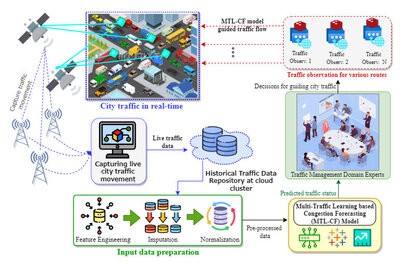
Intelligent Transportation Systems (ARC-iTransportation)
Japan Road Transportation and Information Center (JARTIC) has set up a large-scale nationwide sensor network to monitor traffic congestion in Japan. The goal of this cluster is twofold. First, develop an appropriate Society 5.0 cloud-based data lakehouse to store and process voluminous data. Second, investigate novel machine learning techniques to develop a beyond-visual range route recommender system to improve autonomous driving in large-scale transportation networks.
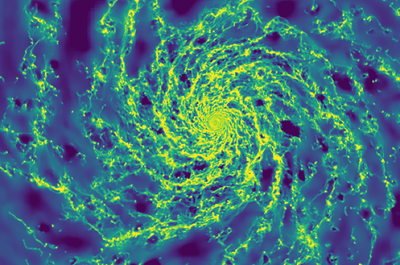
High Performance Computing & Simulation (ARC-HPC)
ARC-HPC cluster will establish a research platform for High Performance Computing (HPC) and Quantum Computing (QC) at our university. Based on the research platform, we will investigate new algorithms for HPC, QC, and large-scale numerical simulations of our universe.
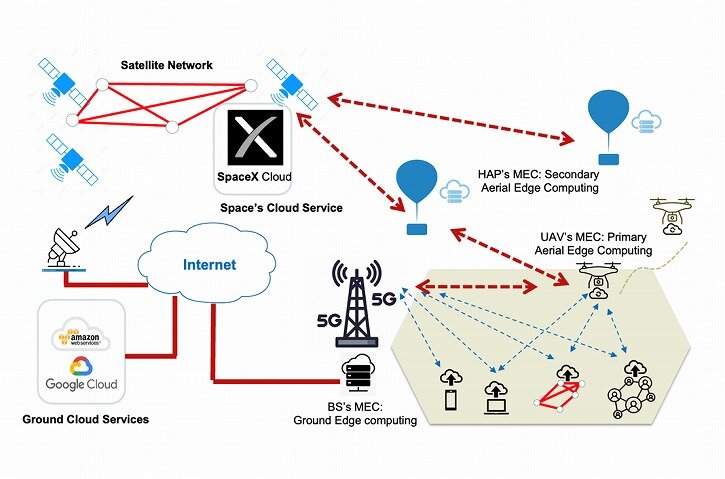
Integrated Computation-Communication pLatform (ARC-iCCL)
We work on the design and development issues of the integrated computation and communication platform for ambient intelligence in the paradigm of beyond 5th generation (B5G) and 6th generation (6G) wireless networks. We especially focus on investigating a wide range of topics for implementing multi-access edge computing (MEC) in space-based communication networks by using various aerial platforms/vehicles, including:
1.Enabling technologies
2.Network architectures
3.Data offloading optimization strategies
4.Security/privacy mechanisms of data and learning models
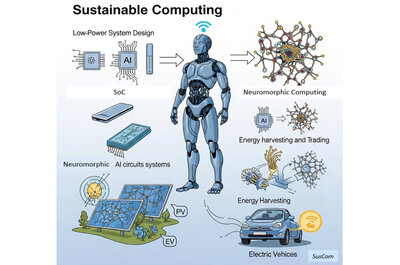
Sustainable Computing (ARC-SusCom)
In today's rapidly evolving landscape, computing technology must not only meet the growing demands of society but also rise to the global call for sustainable innovation. The SusCom cluster is a leading-edge research facility devoted to pioneering sustainable computing technologies that serve both present and future generations. As a vibrant collaborative hub for students, faculty, and industry leaders, our mission is to reimagine high-power, general-purpose computing as low-power, brain-inspired domain-specific systems that are as efficient as they are effective. We focus on cutting-edge architectures and solutions that deliver enhanced computational performance while dramatically reducing energy consumption and environmental impact. Through our interdisciplinary approach, we are advancing climate-conscious design principles, optimizing systems to support high-performance, energy-efficient computing across compute, network, and high-availability workloads. From reducing carbon footprints to building resilient digital infrastructures, our work champions a greener, more sustainable technological future.
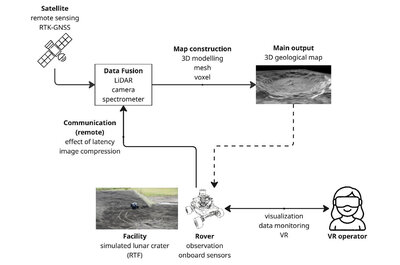
Space Exploration Technology (ARC-SET)
In future lunar and planetary landing missions, exploration using rovers (mobile robots) is expected to become mainstream. In rover operations, a 3D map is a key technology for environment recognition, navigation and identification of scientific targets. We research a 3D mapping method that incorporates geological information -potential scientific targets- using data from sensors mounted on the rover. Additionally, our main research topics include space technologies related to rover operation, data communication and experimental facilities for map construction. This cluster research also relates to activity of the Hakoniwa Program (https://u-aizu.ac.jp/research/researchlist/endetail?cd=90150) through utilization of the simulated lunar crater as the experimental facility.


